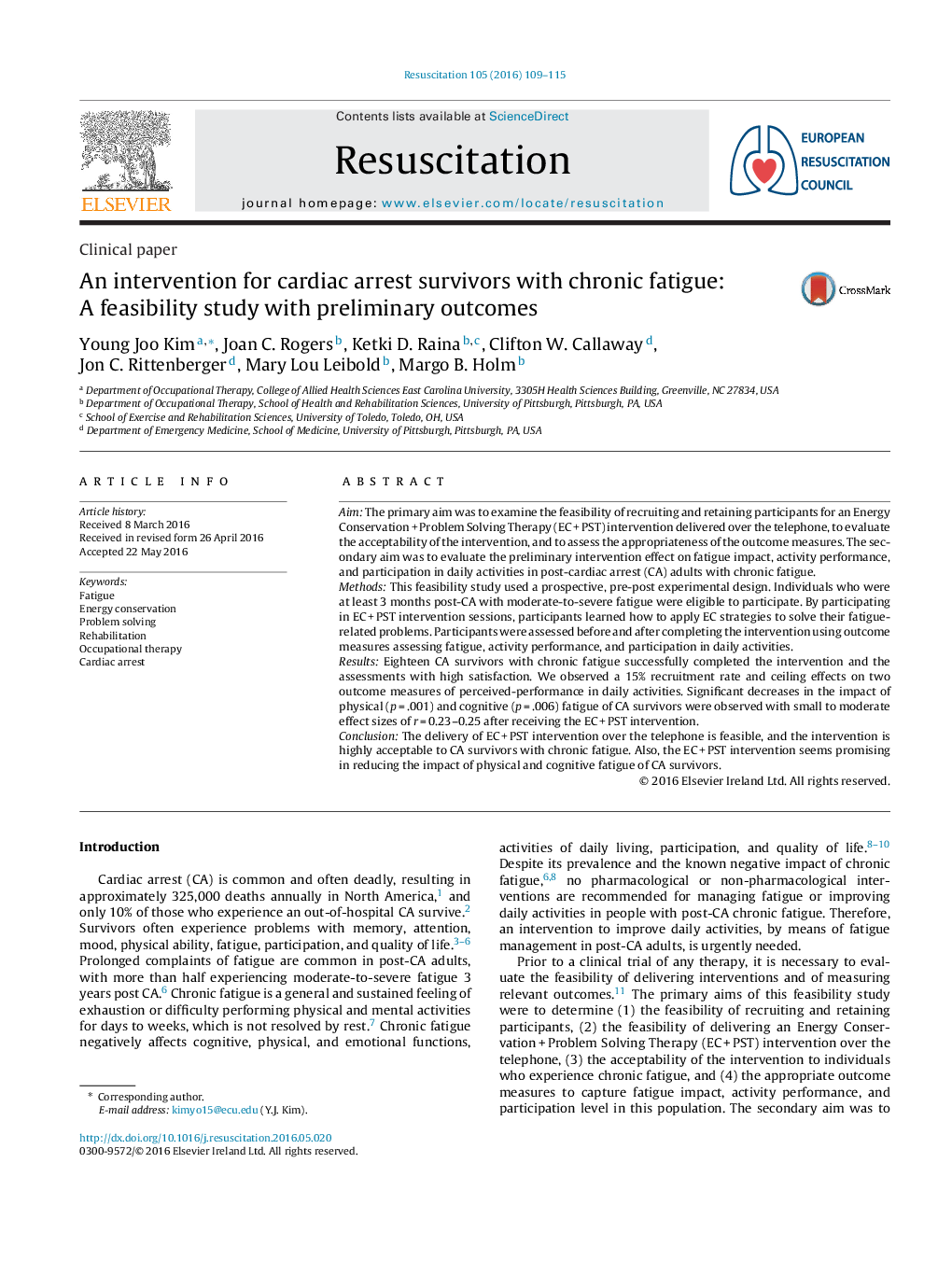| Article ID | Journal | Published Year | Pages | File Type |
|---|---|---|---|---|
| 5997157 | Resuscitation | 2016 | 7 Pages |
AimThe primary aim was to examine the feasibility of recruiting and retaining participants for an Energy Conservation + Problem Solving Therapy (EC + PST) intervention delivered over the telephone, to evaluate the acceptability of the intervention, and to assess the appropriateness of the outcome measures. The secondary aim was to evaluate the preliminary intervention effect on fatigue impact, activity performance, and participation in daily activities in post-cardiac arrest (CA) adults with chronic fatigue.MethodsThis feasibility study used a prospective, pre-post experimental design. Individuals who were at least 3 months post-CA with moderate-to-severe fatigue were eligible to participate. By participating in EC + PST intervention sessions, participants learned how to apply EC strategies to solve their fatigue-related problems. Participants were assessed before and after completing the intervention using outcome measures assessing fatigue, activity performance, and participation in daily activities.ResultsEighteen CA survivors with chronic fatigue successfully completed the intervention and the assessments with high satisfaction. We observed a 15% recruitment rate and ceiling effects on two outcome measures of perceived-performance in daily activities. Significant decreases in the impact of physical (p = .001) and cognitive (p = .006) fatigue of CA survivors were observed with small to moderate effect sizes of r = 0.23-0.25 after receiving the EC + PST intervention.ConclusionThe delivery of EC + PST intervention over the telephone is feasible, and the intervention is highly acceptable to CA survivors with chronic fatigue. Also, the EC + PST intervention seems promising in reducing the impact of physical and cognitive fatigue of CA survivors.
